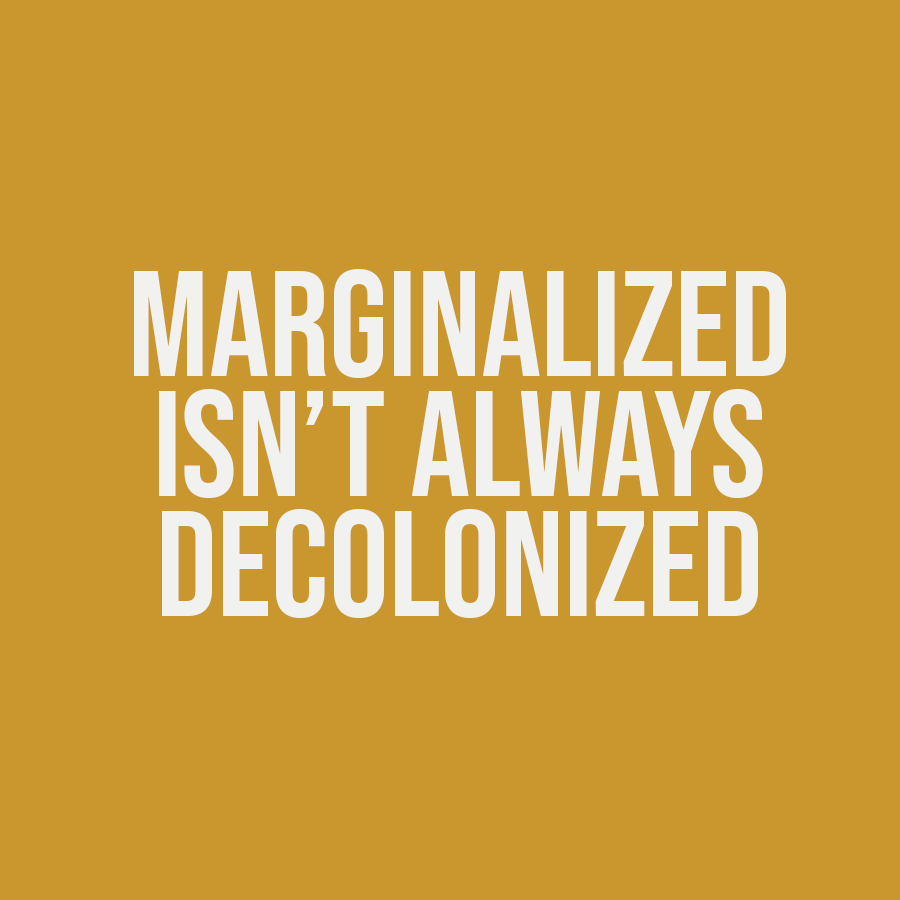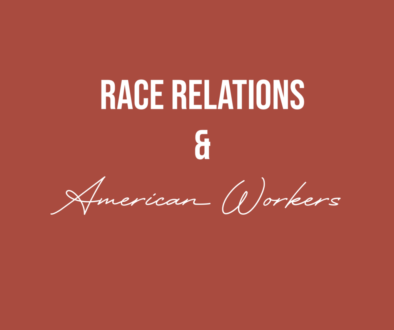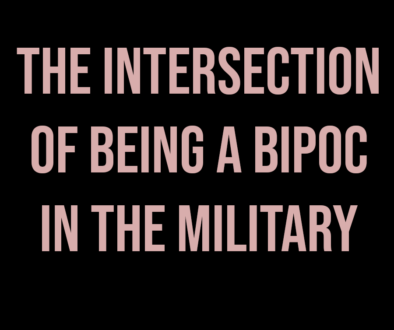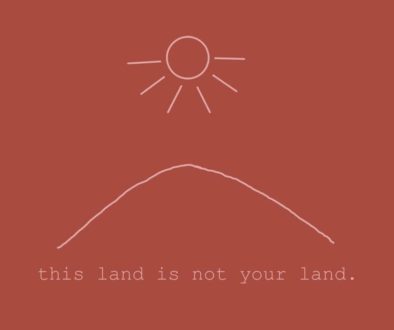Marginalized Isn’t Always Decolonized

During early summer of 2020, a series of widely publicized events caused a new demographic of people to finally proclaim the phrase, “Black Lives Matter”. It’s been a buzz phrase for quite a while, at this point, the majority of my adult life. It was never controversial to me or my circle. We never had to have the “It doesn’t mean other people don’t matter” conversation with any of the people I know personally, it was always known that the statement itself was important and why it was needed. Others around the country took a different journey.
After seeing video evidence of the brutal murders of Ahmaud Arbery, Breonna Taylor and George Floyd, even a lot of naysayers began to realize that the Black Lives Matter movement was around for a reason. A coordinated “sigh” was heard around the world as Black people who had been arguing, explaining and educating for years saw their white counterparts finally “get it”. Along with talks about BLM came talks about listening to BIPOC voices. We had BEEN saying it, we had BEEN asking for help. This wasn’t new. We all knew Ahmauds, Breonnas and Georges. We were annoyed it took more bodies, more deaths, more trauma, and we said finally, maybe you will listen.
In the year and a half since, the conversation about white people and their failing commitment to Black Lives Matter continues, but in pursuit of knowledge, we noticed that many white people took the time to take advice given on a corporate level, or did what they believed was taking advice.
Corporations formed DEI boards to address the needs of the BIPOC employees, they held roundtable discussions about being non-white in America. Their intention was, I assume, to listen to BIPOC voices about the world & make the workplace more equitable for them. The problem here is, the qualifications for many of these advisors were simply being BIPOC, and BIPOC is not synonymous with anti-racist education.
“BIPOC are not a monolith” is a phrase often heard, and it’s factual. The experience of one BIPOC individual is unique to them and them alone. Even within specific nationalities and races, there are so many different fields of thought, opinions, and personalities. In a society where white supremacy is law, it is defiant to believe and act against white supremacy. White supremacy attempts to brainwash you to go against even your best interest in the interest of white men, and it is impossible to practice anti-racism without first acknowledging the hold that white supremacy has on all of us. Not everyone is there, not even everyone America hates.
That’s why its not appropriate to weaponize your “Black friend’s” opinions. Every single person is living their own journey and when it comes to decolonizing your life and beliefs, every single person living under white supremacy has to intentionally dismantle their previously colonized thoughts before they become anti-racist. It’s selfish, really, for white people to believe that BIPOC are born with an innate knowledge of anti-racism, even after growing up right next to them.
As we all grow in anti-racism, the burden is on each and every white person to intentionally diversify their own circles. Tokenism is dangerous to progress because it is unreasonable to expect that 1 or 2 marginalized people share the experiences of everyone, or even most people in their ethnic group. That means now that you know BIPOC voices need to be centered within your organizations, brands and homes, you have to do the extra work to decolonize your own beliefs and principles, to allow BIPOC to have their own journey independent of existing to educate you. The responsibility is on you to find BIPOC who believe in anti-racism as a way of life and pay them to help you on your journey.
It is lazy to throw a net into a field of marginalized people and expect them to teach you how to change your life. It’s not enough and it’s not effective. Anti-racism is work, like parenting, like your job and your business. It’s important work and it can’t just be an after thought. Make sure that the voices that are guiding you through your journey are not only encouraging you to educate yourself, but that they are on a decolonization journey themselves.



